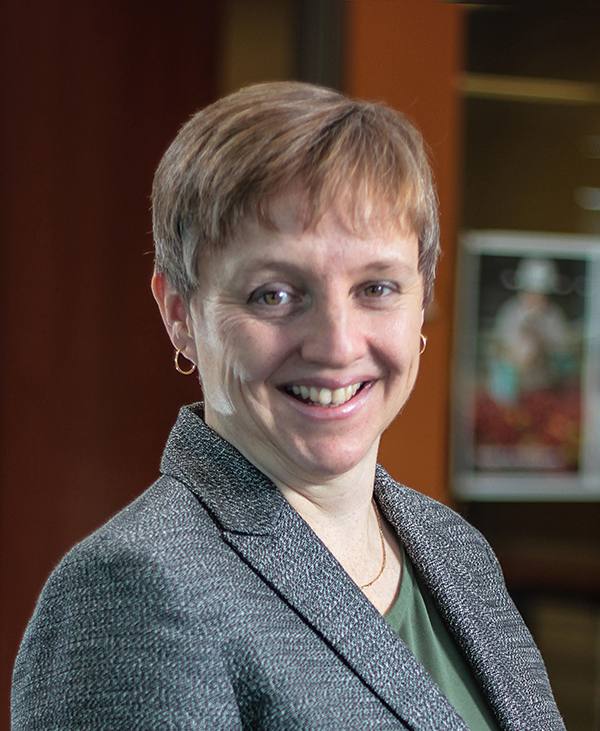Our food system is facing daunting challenges. We must adapt our food systems to sustainably feed almost 10 billion people by 2050 in a world with shifting climate and environmental pressures. In addition, we need to reduce the rising number of undernourished people (an estimated 821 million people in recent years) and confront the significant issue of more than 30% of food production being lost or wasted. Tackling these challenges will require collaboration across all aspects of the food system to assure that production processes, policies and regulations, food safety practices, and affordability align to assure we live in a food secure future. However, most of the current generation of leaders in the food industry has not approached leadership from the systems-thinking approach that will be required to succeed.
Thus, focusing on developing the right skills in the rising next generation of leaders in the food and beverage industry in order to solve these problems will be critical. We need people who can think broadly and are empowered to navigate the complexities of the global food system. Professionals in the food industry need to think beyond the specialties and silos where they currently work. Approaching food problems in an open-minded and cross-disciplinary way will achieve better results for business growth, population well-being, food production and planet sustainability.
In my decades of working in the food industry, I was acutely aware of the challenges that we would face in the future. Now, as part of the Integrated Food Systems Leadership program at the University of Minnesota, we are addressing these issues by helping to train the future leaders that will transform the food system. The following topics are just a few of the areas that we see as essential to develop the food leaders of tomorrow.
Next-Gen Leaders with a Holistic Approach
One of the key steps for new leaders in food and beverage industry is to adapt to food systems thinking. Most professionals were hired for their knowledge in a specific area. Now, to become next-gen leaders, they will need to think about the whole food production system and how all decisions made in this system, from sourcing and production to supply chain and retail sale, affect people and the environment.
Where we source our food and how we produce it is truly global and interconnected. The ingredient and material supply chains are vast and complex. We can no longer afford not to take into consideration where and how these items are being sourced and supplied. Additionally, we can no longer afford not to be responsible for the products produced and how they are affecting the health and well-being of consumers as well as the planet.
The next generation of leaders, no matter what part of the food system they are working in, will need to understand these relationships and think about how all these little pieces from production to marketing and sales work together. When one change is made to the system, whether the idea is from R&D or the marketing department or is caused by a new regulation, this will produce ripple effects across the food system.
True Leadership vs. Management in the Food System
Often times, the idea of leadership is thought of as just managing people—observing a team and making sure each person is doing their job. This is management and not a true definition of leadership. To be a leader means you have a vision and can paint a clear picture of what you see to others. Leaders build relationships with people who help turn a vision into reality. Leaders aren’t afraid to change the status quo and take risks if those risks will help the long-term plan. Leaders help their team achieve more than any individual on the team thought possible.
Leaders have many qualities. First, they have ideas that should be heard. However, in order for those ideas to see the light of day, professionals must know how to communicate so their opinions and thoughts are considered. Knowing how to package a vision and communicate it more effectively are critical to leadership development.
Second, leaders desire to have a meaningful impact in the world. To be able to effect change, seeing the bigger picture and understanding the interdependencies throughout the food system is paramount. As part of this, they want and need to help other people be heard to move the vision and plan forward. They will need the skills to foster collaboration and innovation within their teams and across disciplines to help everyone succeed in making the changes needed in the food system.
Third, although leaders want to grow their companies, they also want to grow personally. When a vision is created and steps taken to pave the way for that vision to come to fruition, a journey begins. Leaders know that any journey embarked upon is a life-changing experience, and they welcome that new stage.
Finally, it is important to note that leaders can be found in more places than the corner office. Leaders are not just CEOs, but come in varying roles and titles. Developing people’s leadership potential, style and goals for whatever capacity they work in is a critical part of leadership building. Leaders exist within every team, department and work group across a business. Finding them, to grow and foster their potential, is the challenge.
Fostering Professional Development in the Field
Food and beverage companies can do a great deal to address these pressing issues today by instilling a culture of learning in the organization. I have found, more often than not, people who enter this industry are passionate about it. However, when individuals enter a company, especially early in their career, they sometimes face a crisis of faith moment and question that their lifelong training has not prepared them for what they truly want to do.
Many times those in the industry feel like they have ideas or skills that aren’t being leveraged. They may feel like they aren’t being heard or that they’ve been pigeon-holed into one segment of or role in the business. These professionals could be the collateral damage of silo mentality and lack of a culture of learning and growth, especially when they are high-value and have specialized knowledge. Corporations have perfected efficiency by keeping certain departments, and individuals within them, separated in order to optimize their segment’s function. But slotting the business, and individuals, into distinct categories can hinder the ability of these organizations to see and understand the big picture.
By breaking down this silo mentality and promoting systems thinking, businesses can help their talented and dedicated people grow their career, become a better leader, and enable a move across the lattice structure within an organization. Many times these individuals feel a little lost in the mix and frustrated as a cog in the machine and are looking for growth opportunities. This doesn’t necessarily mean they want to move vertically within the organization, but rather learn and grow laterally or diagonally within an organization to both enhance their career and provide a broader benefit to the entire business.
When companies equip professionals with critical-thinking skills, they are developing their professionals who want to make a meaningful impact within their organizations as well as in the entire food system. This is true empowerment to improve the future of food and make companies viable and competitive for the future.
If a company doesn’t have this training ability internally, organizations can support programs that are helping to build these leaders. Programs like the new Integrated Food Systems Leadership are designed to help future leaders bridge the current skills gap in the food system. These future leaders will have the tools to drive the change critical for many companies to succeed while we feed the future.







